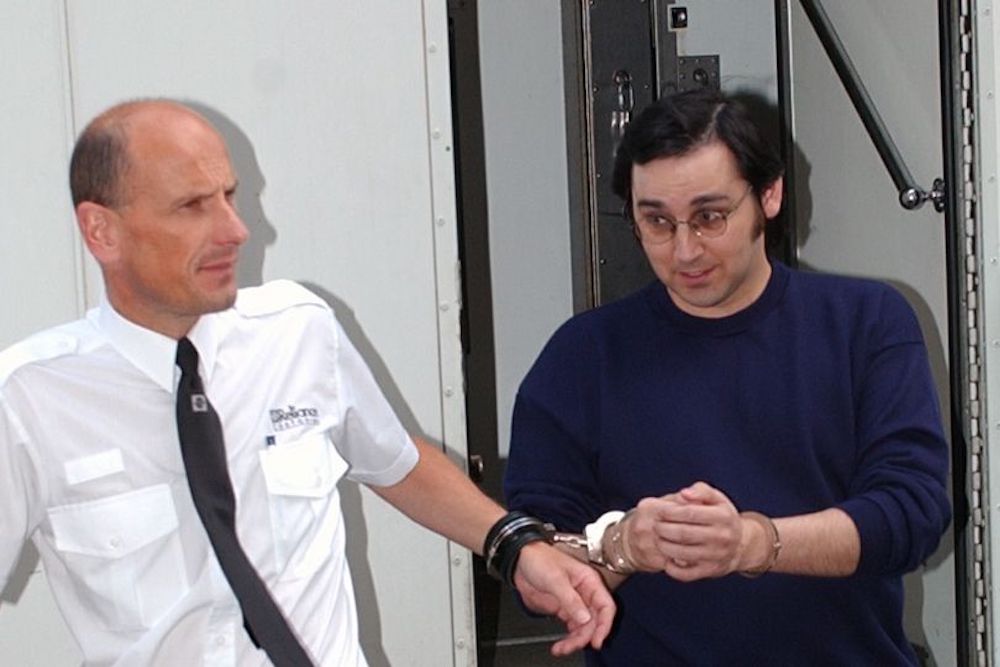Justice Secretary says she has no grounds to intervene in decision to release killer

Martin Shipton
Justice Secretary and Lord Chancellor Shabana Mahmood has decided she has no grounds to challenge a decision to release the murderer of Lynette White, whose killing led to one of Britain’s most notorious miscarriages of justice.
Lynette, a 20 year-old sex worker, was stabbed more than 50 times by Jeffrey Gafoor during a frenzied attack at her flat in the Butetown district of Cardiff on Valentine’s Day 1988.
Three black men were wrongly convicted of her murder and jailed for life.
Their convictions were quashed amid grave concerns about the conduct of the South Wales Police officers who investigated the case.
In 2003, following advances in DNA technology, Gafoor, a white security guard, was convicted of the murder and given a life sentence himself.
Autism Spectrum Disorder
At a hearing held behind closed doors in October, the Parole Board decided he is safe to release. The Parole hearing was told Gafoor had been diagnosed with Autism Spectrum Disorder.
Ms Mahmood had agreed with campaigners, including a relative of Lynette’s and one of the men originally charged with the murder, that the Parole hearing should have been heard in public. But she has now decided not to intervene further.
A Ministry of Justice spokesperson said: “After thorough consideration, we have unfortunately found no legal basis for the Lord Chancellor to ask the independent Parole Board to reconsider its decision to release Jeffrey Gafoor. Our thoughts are with the family and friends of Lynette White as they come to terms with this difficult news.
“He will be subject to strict licence conditions and intense supervision upon release and faces a return to prison if he breaks the rules.”
Specific legal circumstances
The spokesperson added: “The reconsideration mechanism can only be used in specific legal circumstances if the decision is judged to be legally irrational or that the correct process was not followed during the review.
“Offenders released on licence are supervised by the Probation Service and are subject to strict conditions including restrictions on their movements and contact with others. They can be recalled to prison for breaching these conditions or exhibiting behaviour suggesting they pose an increased risk to the public.
“Public protection is our top priority which is why the Lord Chancellor has directed officials to implement a Ministerial check on the release of the most dangerous offenders at the earliest possible opportunity following the passage of the Victims and Prisoners Act.
“This power will give Ministers better oversight of the release of the most serious offenders by allowing them to refer certain cases directly to the High Court for a second check.”
Safety
Investigative journalist Satish Sekar, who has written four books on the murder and expressed concerns for his own safety if Gafoor is released, said: “As the Secretary of State for Justice has decided that there are no grounds for her to intervene, the only options remaining are the reconsideration by the Parole Board or a judicial review. I submitted my grounds to reconsider before the deadline on November 7, but I am not optimistic. This is the same organisation that misrepresented my views and left me vulnerable to possible retaliation.
“I was told by the Parole Board that I was not entitled to request a reconsideration late last month, so yet again I was not given the full time available – 21 days. This week I discovered that I had been given the wrong information and I was entitled to have a say – anyone with an interest was. My safety was jeopardised by the Parole Board, but I am being told to sort out their mess for them. If anything happens to me, it is on them!
“It is disgraceful that all of the victims of Gafoor’s crime and conduct have not had their say. It is scandalous that the public is expected to trust the word of an organisation that did not follow its own procedures adequately and does not trust the public to observe its practices at the hearing – I don’t.
“I don’t expect much from the Parole Board after its behaviour to date, so the best option may be judicial review, which may need public support to go ahead. The public needs to be given access to all the necessary information to decide if they feel safe or not – I don’t. Without openness and transparency, it is impossible to judge the procedures and the case and whether the public will be safe.
“If Gafoor is released, I hope he does not reoffend. If he does, I hope those responsible for his release will accept responsibility and do the honourable thing. I plan to call on the police to demand that Gafoor’s licence conditions ban him from contacting me or coming anywhere near me. Shamefully, the Parole Board refused to insist on this after having put me in a position where this is necessary, and I am expected to trust them with the safety of the public. Not surprisingly, I don’t.”
The Parole Board maintains that it has acted properly and in line with the relevant legislation.
Support our Nation today
For the price of a cup of coffee a month you can help us create an independent, not-for-profit, national news service for the people of Wales, by the people of Wales.




